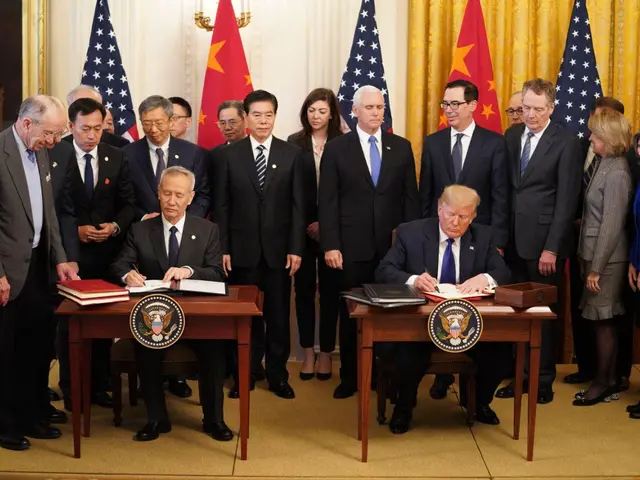The just-signed China-U.S. phase-one trade deal benefits both economies, the head of a major U.S. taxpayer rights group told Xinhua in a recent interview, calling on the two nations to "keep the momentum moving forward."
"It is important that the United States and China maintain good trade relations. It benefits both the economies," said Pete Sepp, president of the National Taxpayers Union, a Washington-based advocacy group representing the interests of taxpayers from all walks of life across the country.
Sepp's remarks came as Beijing and Washington signed the much-anticipated phase-one trade deal on Wednesday, with Chinese Vice Premier Liu He and U.S. President Donald Trump inking the papers in the White House.
"The benefits of phase-one happen to be reducing the tension between the two countries, so that a more solid foundation for agreement can be made for future progress on trade," Sepp said, adding that the positive effects of the agreement will go beyond the two countries to extend to "all of (U.S.) trading partners."
"There probably could have been more" progress in the U.S. economy "had many of these trade questions been settled earlier," Sepp said.
The fact that trade, tax and regulatory policies are closely connected "might be one reason why, for example, we have yet to see as large an increase in GDP growth -- even in job growth and wage growth -- in the United States," he said.
Sepp called on Washington and Beijing "to keep momentum moving forward rather than backward." While recognizing there are difficult questions that remain to be resolved, he said the two sides "must keep talking."
Looking from a U.S. perspective, Sepp said, the phase-one trade deal with China "essentially" could serve as an "insurance policy" in the face of an economic downturn, part of an effort that is "going to create the long-term conditions to prevent sharp economic corrections that benefit no one."
In addition, Sepp said his organization is quite concerned that in the absence of an agreement "on how freely supply chains can flow among countries," harmful tax policies will follow.
"That's a situation we don't want to see happen with the United States and China," he said.
Further elaborating on the disruption of supply chains caused by trade barriers, Sepp said those impediments will result in economic inefficiency. Companies could have invested in more plants or equipment or more talent, he added.
Speaking of the role of China and the United States in promoting free and fair trade around the globe, Sepp suggested that the two countries show "leadership demonstrating that economic powers, while they might compete with each other, need not be rivals."
 简体中文
简体中文








